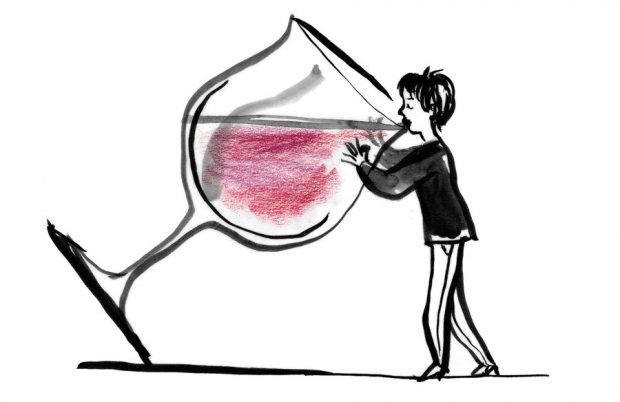Drinking in the 21st Century
 Growing up in my household, I remember alcoholic beverages were strictly forbidden. My mom had come from a background where her dad and older brother were both alcoholics, and she experienced first hand terrible things that drunkenness leads to.
Growing up in my household, I remember alcoholic beverages were strictly forbidden. My mom had come from a background where her dad and older brother were both alcoholics, and she experienced first hand terrible things that drunkenness leads to.
As I got older, I lived in Europe for awhile, and my position relaxed somewhat.
Later I joined a church which has in its constitution when one joins, a promise not to drink, and I frankly haven’t missed it.
Now, my son, recently after a bout of debates with the UnderOATH group, on their site, claim to be a Christian band, but admits to drinking, having been drunk, and “messing around with their girlfriends”, has formed some strong opinions on the subject of drinking alcohol.
After a good amount of time talking with these people and doing a lot of research, he created an informal paper to get his thoughts in order.
He sent me the paper and others have asked to see it, so he asked if I could put it in my blog. Well, I decided to create a page alone for it, but I would love to share it with everyone too.
Enric Lopez’ Informal Paper: Drinking in the 21st Century.















What about the health benefits of drinking, which are many? Some researchers have gone so far to suggest that to NOT drink is detrimintal to your health.
“Research has determined that what distinguishes the health benefits of wine from other alcoholic beverages is the notable presence of tannins and esocyanine which are composed of polyphenols. Polyphenols have a positive effect on the vascular system as well as stimulating antiviral and antibacterial responses in the body. The implication for women is particularly important, as a Harvard University study has found that a glass of red wine a day can reduce heart attacks for females by 25%. In addition, wine has been found to lessen and in some cases bring a cessation to the degenerative effects of osteoporosis.
“This is all of course assuming that wine is consumed in moderation, just as the Europeans do, defined as roughly a glass or two of wine every day. Any alcohol consumed in excess can lead to serious health problems including heightened risks for severe liver, kidney and psychological disorders.”
That being said, we need to exercise personal judgement and whether we decide to drink or not, be mindful of our attitude toward others. We don’t want to be either a stumbling block or a Pharisee.
My son has a very good mindfulness of his attitude towards others. He cares a lot, which is why he is living such a sacrificial life in missions, because he DOES care. I am his mother, so hardly one better to know what he does without, to live not for self, but for God and others.
That being said, I am not sure the “benefits” outweigh the ill effects.
Short-term effects
A small amount of alcohol will relax you and make you feel less anxious. But alcohol is a depressant of the central nervous system. In increasing amounts it suppresses the part of your brain that controls judgement, resulting in a loss of inhibitions. It also affects your physical co-ordination, causing blurred vision, slurred speech and loss of balance. Drinking a very large amount at one time (binge drinking) can lead to unconsciousness, coma, and even death. Vomiting while unconscious can lead to death by asphyxiation (suffocation).
Alcohol is involved in a large proportion of fatal road accidents, assaults and incidents of domestic violence.
Long-term effects
Alcohol can be a dangerous drug. Drinking too much too often will cause physical damage, increase the risk of getting some diseases, and make other diseases worse. Excessive drinking over time is associated with:
hepatitis and cirrhosis of the liver
gastritis (inflammation of the stomach lining) or pancreatitis (inflammation of the pancreas)
high blood pressure (which can lead to stroke)
certain types of cancer, including mouth and throat
damage to the brain
heart failure
neurological problems such as epilepsy
certain types of vitamin deficiency
Excessive drinking has also been linked to:
obesity
sexual problems
infertility
muscle disease
skin problems
Naturally the decision is always between us and God, but I see nothing wrong in exploring the Bible to see what God Almighty has to say about it, rather than just trusting our own hearts (and the “medical” and commercial community) on the subject. There is definately money to be made for both if we keep drinking up.
Hi Jeff, Thanks for responding and commenting.
You put the benefits of alcohol to try and prove a point, but I noticed a lack of Biblical support in your arguments. Maybe you were thinking logically only and forgot to put any Biblical evidences, but because there is no Bible in your statements, I have a question for you: Do you hold the Absolute Authority of the Scripture? Because I do. The Word is my foundation and supersedes any logic that I might have. Is this the case for you? If not, then you most likely missed the whole point of this paper.
A sub-point though, is that we do not NEED any form of alcohol in this day. If you or someone else is concerned about health as you mention, there are plenty of alternatives that will be beneficial. These alternatives have contain no risk of temptation or loosing testimony (which the Bible has much to say about).
I (Enric) will be checking now and then to answer questions or respond to comments. So feel free to address me personally, and I will do, my best to get to everyone. I can’t promise that I’ll respond to all people with every type of comment, but I’lll do my best.
In Christ,
Enric
First off I must say this is a great paper with lots of research and work put into it, and for that I commend you and you were right, putting it in this format cleared up a lot of the positions you made before. But, you know me, I do have some new questions for you. First off, I want to start with Jeff’s post a couple days back. Jeff was only answering your challenge, not going through the entire post so it is a little unfair to criticize him for not having biblical support. “And if it is not best and just “good” (I have yet to hear someone prove that)”. You asked someone to prove that it can be good for you and he did just that. You said wine would be used back in the time of 1st century Christians for health reasons, using a bible verse, and said that doesn’t apply to today and he was proving that it still can be healthy today. Where do you expect him to get the biblical proof if you say the biblical proof doesn’t apply to today? And to Xerraire, all of your points are true, but don’t exactly disprove Jeff’s. Jeff was speaking of the benefits of responsible drinking in moderation whereas you were speaking of the effects of “In increasing amounts”, “Drinking too much too often”, and “Excessive drinking”. In any worldly activity excess is wrong (Proverbs 25:16). Now I’ll just go to the points. 1. When you say 9-15% stronger are you saying it used to be 3-6% and now it is 12-21% alcohol content or are you saying 15% of 3-6%? Does that make sense? 2. In answer to “They do not care if their product destroys families, ruins lives, or ends the lives of people, which alcohol does in some way every day.” I firmly believe that some wine vineyards do it hoping for drinking of pleasure, not quantity. And for these people I ask you this, Would you blame the gunshop owner for someone who uses the gun to murder a person rather than hunting, target shooting, competitions, or self defense? 3. What did you mean here, “(emphasis mine).” at the bottom of the fourth paragraph. 4. Just because someone can have a glass of wine without getting drunk doesn’t necessarily mean they are trying to prove anything. They could just enjoy the taste of wine which is the exact reason you or I drink Mountain Dew. I’m a little surprised you would jump to that conclusion. 5. My only other big problem with this paper is when you are speaking of 1 Corinthians 9:16-23. It seems to me at least that you contradicted yourself here when you say “Paul was willing to go to the unlovely people of the world, risking reputation among other things, to win some.” and “if Paul’s actions were characterized by compromise and risking testimony, then he would be a hypocrite and contradicting his own teaching”. I don’t see what the difference is between risking reputation and risking testimony. Well these are the only new questions I have for you, you know all of my other positions. But your paper was very well done with lots of research and I did learn a lot from it. Those three things were the only points that I disagreed with. Thank you for posting your paper, I’m sorry if you feel that I just tried to tear your paper down, thats not what I meant by this at all, I really did like it.
Hey James, Glad you read it. Don’t worry, I expected questions and comments from you, And that’s what I appreciate about you: you think critically (not in the negative way) and come up with great questions. On the topic of Jeff: perhaps your right. Maybe he is answering my challenge, but he doesn’t make that clear if he is. And you can’t know that for sure because you dopn’t know him or where he’s coming from. All we really have to go on is what he said. If I treated him unfairly, then let him speak up. But the real problem is this: I responded without that section of my paper in mind. He didn’t make it clear if that was what he was reffering to. Also, if we are talking about alcohol being used medicinally, then I would think of something like Nyquil. (that is somehting that I would consider a “better option†because when you drink Nyquil, everyone knows that it is for a cold or flu, but when it is wine, that’s not so obvious. I tried to answer him as best I could with what HE presented. I’m not sure what Biblical proof you are talking about.
In defense of my mom, Some of those affects are the result of abusing alcohol, others are the result os drinking over many years. And if I know my mom well enough, I think she was trying to display how NON-beneficial alcohol is, compared to the few benefits.
To the points…
1. The first thing you said is right. Not 15% of 3-6 %.
2. What percentage of alcholic companies are we looking at that actually have pure motives? I don’t want to guess because I don’t know. I knowthat you like to emphasize wine and not beer, but I don’t make that clear of a distinction. The overwhelming majority of companies do it for the money. And my MAIN point with that, is no such industry ever existed in the 1st century. It’s corrupt. I would not blame the gunshop owner (unless he wasn’t doing his job and sold it to someone he shouldn’t) but guns don’t have the same association as alcohol. It’s a different animal. We’ve been on this part before, but I’ll say it again: Why would a Christian want to associate themselves with a corrupt industry that has the world written all over it? It doesn’t make sense to me at all. Can you answer that for me?
3. Sorry, this is one of those things that changed in the transfer or some thing. “One or two drinks†is supposed to be italicized for emphasis, but was not in the original quote. That’s why I put “emphasis mine.â€
4. Again, you are talking about wine and the culture that goes along with that. Do you agree that the wine’s culture is different from the beer culture? And, do you agree that the beer culture is more predominant than any of the wine culture?Do you see why I bring Job into this? Job turned away from evil. That is a very active word in the Hebrew. It is a conscious decision of the will to abhor that which is vile and then turn away from it. What we Christians are too good at is letting sin and evil commingle with our lives every day. Would you agree? Drinking alcohol is another form of not turning away from evil as Job did. I realize that not every one falls into that category and that is why I tried to put things like “this is a motive, but not the only one†in an attempt to not make hasty generalizations. If I clarified things like that all the time, my paper would be weaker and longer. If you view this section as a platform for what I say in “differences in thought patterns†I think you’ll see that I’m not jumping to too far of a conclusion.
5. Perhaps I should have clarified that better. Reputation is different from testimony. Reputation deals with things like Paul talking and being with Gentiles while Jews look on with disgust, or fellow believers watch Paul witness to a someone who is in known sin and they wonder what in the world he is doing with that person. Risking Reputation is things that perhaps look off because it is unappealing to someone, when in reality Paul is doing it “for the sake of the gospel.†One could get a bad rep for something like that, but when it is for the the Gospel’s sake, it doesn’t matter. The point is,Paul is doing nothing wrong. Risking Testimony is doing something that is considered wrong, looks wrong, is wrong in front of believers and/or non-believers. This is what Paul would not do. Why, because that would harm the message of the Gospel and therefore he would not be doing it for the Gospel’s sake at all now would he? Do you see the difference?
I’m glad you liked it. Don’t worry, I believe that you weren’t just trying to tear the paper apart. If you were wanting to do that, your comment section would have been a lot longer.
What do you say to the last section “differences in thought patterns?” This to me was the core issue. How a person handles “gray” areas really stems from what their goals are in life. If it is excellence, their approach is going to be different from the one who is pursuing mediocrity. I’ll stop there, but I do want to know your thoughts on that point.
Enric (fundy)
One thing I need to clarify. At this point, I do not make a distinction between the substance of wine and beer… alcohol is alcohol. I do make a distinction between wine and beer culturally speaking. I won’t drink beer for all the reasons I’ve mentioned, but I won’t drink wine for some of those reasons and not all. Make sense?
James
I wasn’t trying to disprove Jeff, so you might have misread that.
I was simply saying that I am not sure the benefits outweigh the pitfalls.
We live in 21st century and we know so much about being healthy these days. I think we can find ways that don’t include alcohol.
This is completely another subject, but, another thought I had is the impression teens are getting from this ‘grown up’ activity.
As parents, we need to be careful as unfortunately, the trend amongst teens seems to be to binge drink.
As some consider it more than OK, mom and dad and family do it, so can they. Too often they dont’ stop at one or two.
“The average age when youth first try alcohol is 11 years for boys and 13 years for girls. The average age at which Americans begin drinking regularly is 15.9 years old.
According to research by the National Institute on Alcohol Abuse and Alcoholism, adolescents who begin drinking before age 15 are four times more likely to develop alcohol dependence than those who begin drinking at age 21.
An early age of drinking onset is also associated with alcohol-related violence not only among persons under age 21 but among adults as well.
It has been estimated that over three million teenagers are out-and-out alcoholics. Several million more have a serious drinking problem that they cannot manage on their own.
The three leading causes of death for 15- to 24-year-olds are automobile crashes, homicides and suicides — alcohol is a leading factor in all three.
While drinking may be a singular problem behavior for some, research suggests that for others it may be an expression of general adolescent turmoil that includes other problem behaviors and that these behaviors are linked to unconventionality, impulsiveness, and sensation seeking.
Binge drinking, often beginning around age 13, tends to increase during adolescence, peak in young adulthood (ages 18-22), then gradually decrease. Individuals who increase their binge drinking from age 18 to 24 and those who consistently binge drink at least once a week during this period may have problems attaining the goals typical of the transition from adolescence to young adulthood (e.g., marriage, educational attainment, employment, and financial independence).”
Needless to say this creates a large impact on our society, and I have seen with my own eyes this played out. This is not just an article, it’s DONE.
Where there possibly could be benefits to adults, young bodies and minds wouldn’t have those benefits, and less when abused.
“Parents’ drinking behavior and favorable attitudes about drinking have been positively associated with adolescents’ initiating and continuing drinking. Children who were warned about alcohol by their parents and children who reported being closer to their parents were less likely to start drinking.”
It’s a huge topic I guess, but we really must consider everything when we give our acceptance of it.
I think that Enric makes a very good case for the difference and use of wine in the 1st century versus today.
My wife and I are believers and we have an occasional drink (once a week or less) and we limit ourselves to one drink.
Alcohol has been a huge problem in our families of origin and is a huge problem in society today. Our own son has experienced the negative effects.
Personal responsibility is the answer, and for believers I think that Enric has it right. A believers use of Alcohol should be not at all or only on rare occasions and in very small amounts.
Thanks for bringing this very important topic, countless lives have been lost or destroyed because of alcohol consumption, especially when driving is thrown in the mix.
So this has been a long time coming and for that I am really sorry. I have been busy, but I will not use that as an excuse because of course there have been nights when I could have done it, but ever since school started my priorities have laxed and until recently I haven’t realized the severity of it until God spoke through a friend, my bible study leader, and the pastor of my church to me without them realizing it. My friend was speaking of someone else who we agreed to help and it hit me that I haven’t been doing great recently either and the other two just were giving general talks to the groups. So here I am and I am sorry for that lapse. To Fundy- That is true, I was just defending him off of what I thought he intended to say, which I sometimes have a problem with doing. The biblical proof I was thinking of was actually the first paragraph where you say, they used it back then for health reasons, but you can’t use that argument today. Ok, I can agree there are many negatives, but he was speaking of the alcohol used in moderation argument, “This is all of course assuming that wine is consumed in moderation,…,defined as roughly a glass or two of wine every day.” 2. I know we have been over this before, but I still make the distinction between beer and wine because I don’t think it has that worldly shadow cast over it. When you say there is no distinction then do you believe there is no difference between wine and vodka? I believe that if a person walked up to a Christian couple having a glass of wine compared to a shot of vodka or even a beer there would be a totally different reaction. 3. Gotcha. 4.I think you used Job in the wrong way “Drinking alcohol is another form of not turning away from evil as Job did.” Sure Job turned away from evil, but drinking is not brought up once in that entire book, you are putting your thoughts into that book. But in answer to your question: What can be right with it? Finding a common ground with a non-believer or give a reason to just sit and talk with a person. Both could easily happen and would be to the glory of God. I really like what you say at the end though “It is safe to say that we misrepresent God by trying to go as far to the edge as possible without going over it, when we should be turning away evil and becoming as close as we can to the image of Christ to whom we will be conformed one day.” 5. I think I understand that better now than I ever have, thanks. Actually I really like your ending paragraph. I have known that we should always strive for excellence, but I’ve never looked at it that way. I completely agree with 99% of it, the one percent being of course the conclusion of the two final sentences :), but the rest of it was incredible. Thank you, your paper and this whole discussion has been a great journey so far and I have actually learned so much from it. Again I’m really sorry about this being so late, I just hope you will even see this. God Bless You.
You are still alive! (Said in a happy jovial tone
It’s great to have you back.
You’ve caght me now at quite a busy time… this is final’s week at NBBC so I’m in the middle of reading and studying for exams
Instead of going through each point, I’d like to focus on something else that you said. We could spend a lot of time on each of those points or have a more beneficial conversation since I think that it is quite clear where we stand. And for the record, although I don’t agree with a Christian drinking 1 or 2 glasses of wine a day, if their attitude and philosophy are the same as what you have told me yours is, I don’t think I would such a problem with that. I would talk to them for sure, show them things from the Scripture that perhaps they have not considered before and then let the Holy Spirit work from there.
The attitude is key to me. If someone has an attitude of “this is what I want to do and you can’t change my mind”, then that is a revealer of a bigger problem than drinking alcohol then isn’t it? I’m really not going to press the drinking issue from that point on, I’m going to confront the attitude that is revealing their sinful heart. I’m going to attempt from the Word of God to show them that they are pursuing excelence before God, not with that kind of attitude.
But if they have the mind set of being open to what the Word of God says, and have considered it, prayed about it, asked the important questions (like the ones mentioned in the paper), then I’m not going to still be in there face about it. Because I think that perhaps they are trying to live a Biblical centered, God pleasing life. They are pursuing excellence. (more on this in a moment)
The problem is though, the majority of people that are in the drinking is ok camp fall closer to the first type of person rather than the second. Don’t you think?
So this is my question to you: You say that you agree 99% with the final paragrach except for the last two sentences. How does the consumption of alcohol not fit in the category of pursuing excellence? By not agreeing with the last two sentences I’m assuming that you think a person can be pursuing excellence and drinking wine (or perhaps any form of alcohol?) at the same time
I’m trying to understand myself (and I’m looking for you to help me) if a person can legitimatly be pursuing excellence before God and habitually drink wine at the same time. So tell me, What would this person look like? What things would be true of things person, and what things would not be true of this person?
I really do look forward to your respnse to this.
By the way, I’m crunched for time, and I’m trying to make this as profitable a time for the both of us. I realize though, that I didn’t answer some of your questions. If there is anything that you really want me to touch on, please let me know
Ok, signing of for now,
fundy
Hey I can’t answer right now I’m kind of backed up on homework and stuff because I’ve been in Florida for a little while, but I will answer as soon as possible. Although I must say I am incredibly surprised with the response time to my post. I figured I wouldn’t be getting one for a while due to the long pause on my part, I figured you would have stopped checking by now. Well more later, Sorry.
The reason for the quick response was because my mom saw on her website the “recently commented” section and then let me know.
May your time in studying be very profitable.
Research shows that the risk for developing alcoholism runs in families. The genes a person inherits partially explain this pattern, but lifestyle is also a factor. Your friends, the amount of stress in your life, and how readily available alcohol is also are factors that may increase your risk for alcoholism. But remember: Risk is not destiny. Just because alcoholism tends to run in families doesn’t mean that a child of an alcoholic parent will automatically become an alcoholic too.